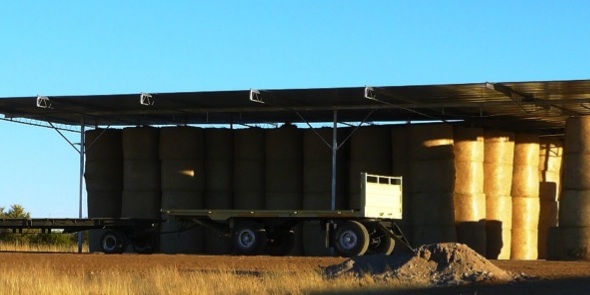With drought gripping Namibia and most pastures depleted, the Namibian Agricultural Union (NAU) has been receiving numerous inquiries about the possibility of importing stock feed from South Africa to supplement local supplies.
According to the NAU, during a meeting that took place in December 2023 between the Livestock Producers Organisation, livestock producers and the Directorate of Veterinary Services (DVS) of Namibia, the DVS appreciated the urgency of farmers’ situation with the drought, especially in the south.
Dr Vistorina Benhard, the state veterinarian involved in import/export control in Namibia, said it is important to protect Namibia’s animal health status.
NAU reminded farmers that the South African livestock industry is currently suffering from foot-and-mouth disease and while importing animal feed into Namibia is possible, there are strict requirements for that to happen.
Writing in the latest issue of the union’s weekly newsletter, NAU said the animal feed may only come from areas of South Africa where no FMD occurs and where strict biosecurity measures are applied.
“No cloven-hooved animal may have had access to the area where the forage is grown and harvested and the feed must be free from any seriously identified contamination, including material of animal origin,” noted the union.
In addition, NAU said the bales of feed must be steamed in a closed room with the centre of the bales reaching a minimum temperature of 80 °C for at least 10 minutes.
“The bales can also be fumigated in a closed room for at least eight hours at a temperature of 19 °C or the fodder bales must be kept in isolation or quarantine for four months before export,” said NAU.
According to NAU, the vehicle to transport the feed must also be cleaned and disinfected according to set requirements using veterinary approved disinfectants that are effective at inactivating the FMD virus.
Benhard said the starting point for any producer wishing to import animal feed would be to contact the local DVS in the area where the animal feed originates.
“That veterinarian must certify the set requirements have been met for the feed consignment and seal the vehicle,” said Benhard.
– email: matthew@namibian.com.na
Stay informed with The Namibian – your source for credible journalism. Get in-depth reporting and opinions for
only N$85 a month. Invest in journalism, invest in democracy –
Subscribe Now!






